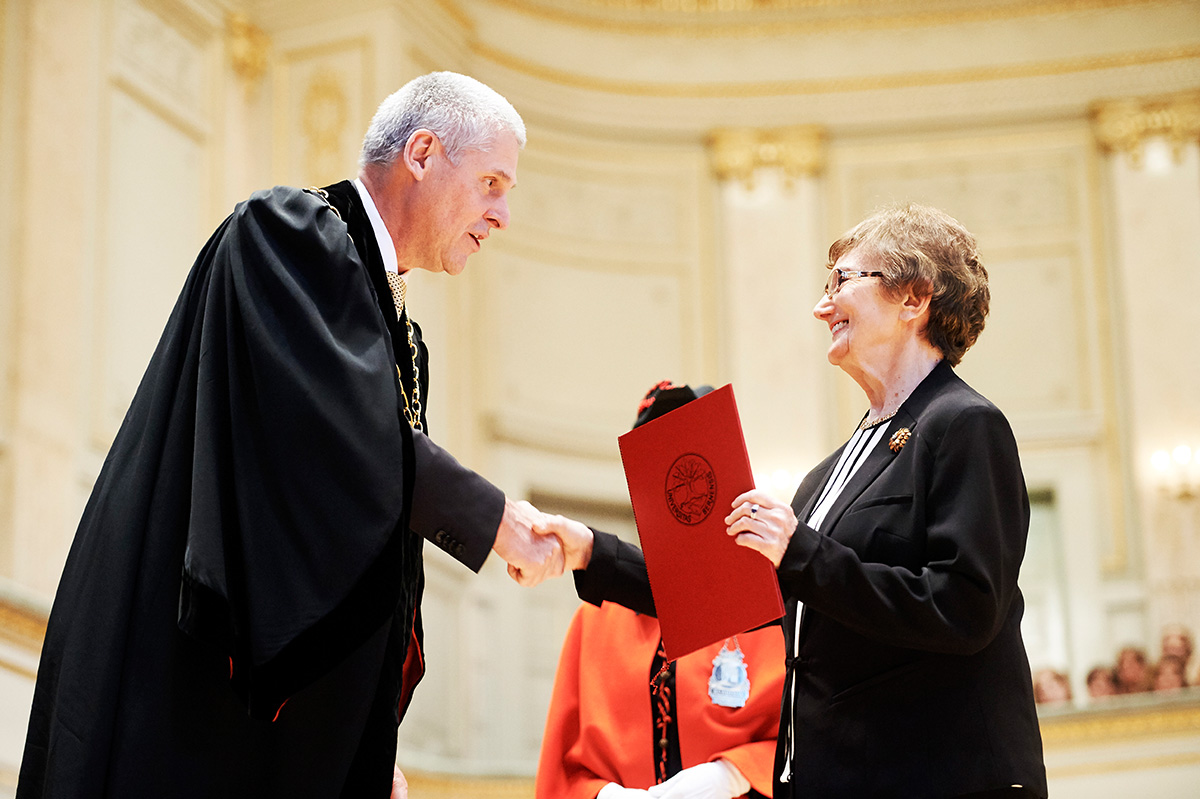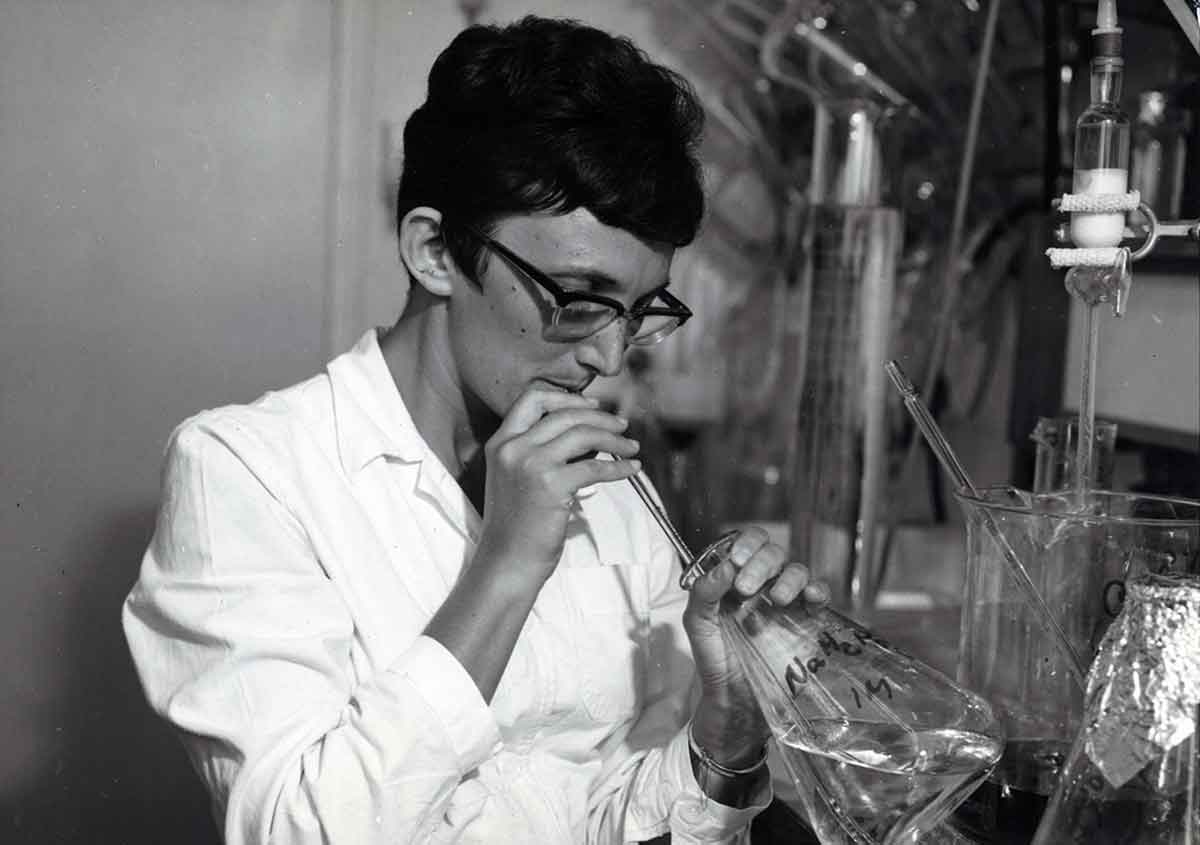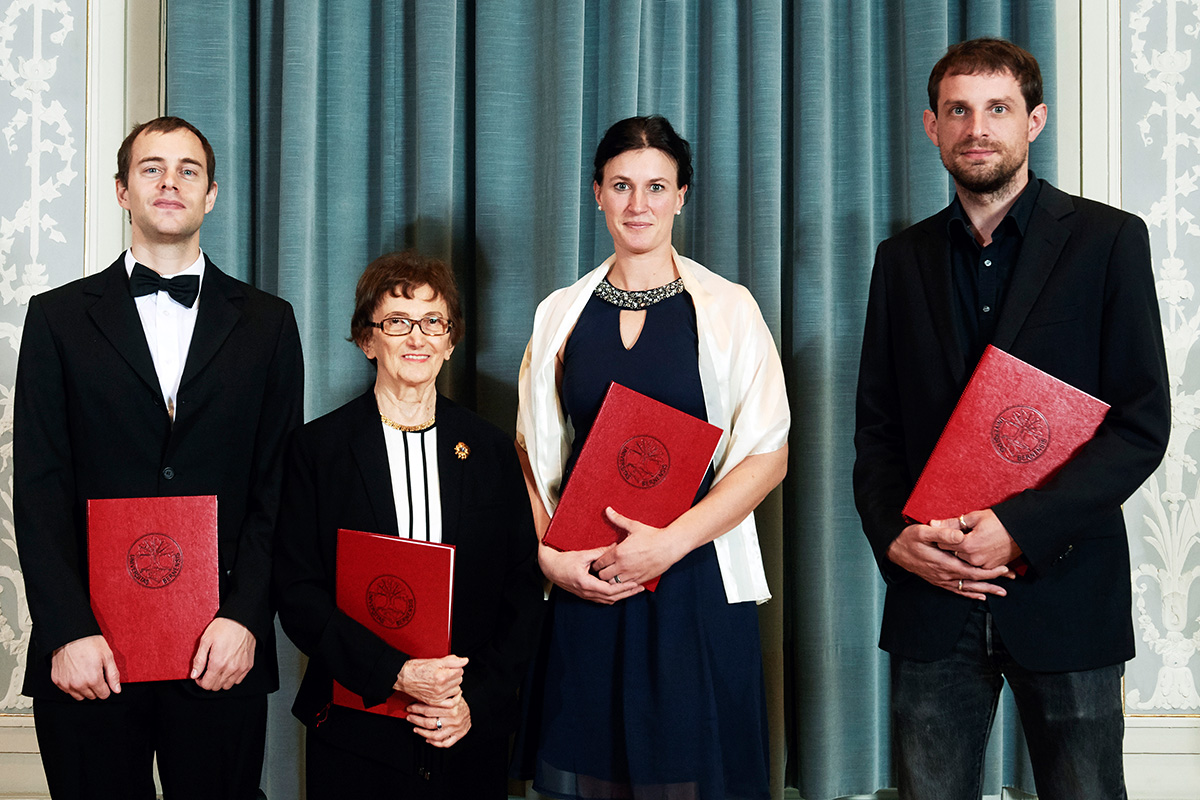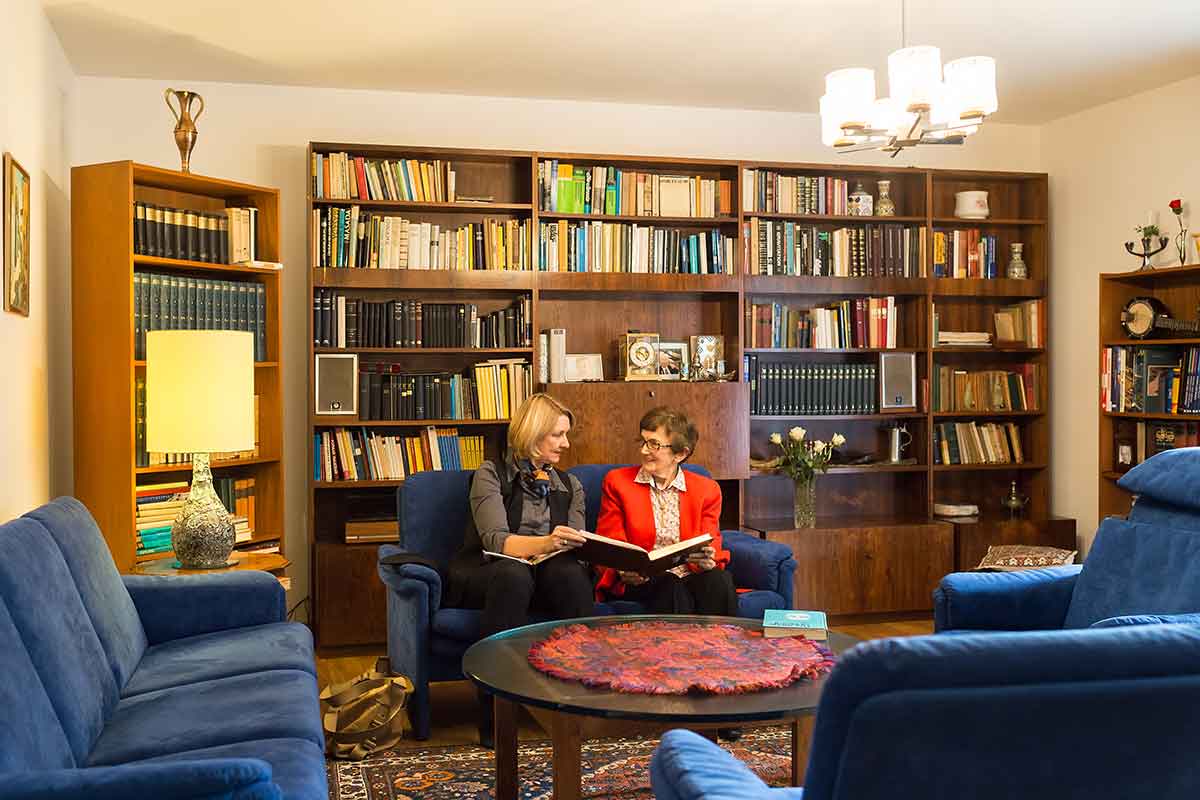"I want to motivate young researchers"
On the occasion of this year’s Dies academicus, the University of Bern conferred the title of Honorary Senator upon Dr Celia Zwillenberg. In an interview with "uniaktuell", she tells us why her support of young researchers is so close to her heart.
"uniaktuell": Dr Zwillenberg, what thoughts will you have when you go to the first Senate meeting?
Dr. Celia Zwillenberg: I would like to make a contribution to the university, even if it is just a small one. As an Honorary Senator, I participate in the meetings in an advisory capacity. First I would like to hear what is said and discussed.

You grew up in Argentina and studied and later completed your doctorate at the National University of La Plata. What brought you to Bern?
After I moved to Israel from Argentina with my parents, I met my future husband, Lutz Zwillenberg, at the Weizmann Institute in Israel, where I was doing scientific work. He had lived in Bern since 1959, first worked at the Institute for Anatomy at the university and later ran a private research institution. I remember the first time I started talking with Lutz, by a centrifuge. Soon, more developed between us. And that is how I finally came to Bern. It was very difficult for me to leave the Weizmann Institute. At the expansive Weizmann Institute, I was never alone. In Bern, I first had to attend school and learn German. After a period of adjustment to the idiosyncrasies of the country, which was new to me, I was very impressed by the reservedness of the people.
And how did you come into contact with the University of Bern for the first time?
I was already in my mid-thirties, wanted children and had decided against an academic career. We had two daughters. One day, I took my two girls with me to an open house in the Department of Chemistry and Biochemistry on Freiestrasse. My research area had been chromatography, a method of separating amino acids. I asked Professor Boschetti if he could use me. I received a position ("ad honorem"; that is, without pay) and could also publish. I have many good memories about this time in the laboratory with young people.

You are the benefactor of the Dr Lutz Zwillenberg Prize, which is granted to young researchers in chemistry and biochemistry in memory of your husband, who died in 2011. Did you decide together to endow a prize such as this?
My husband had already donated something every year. The support of young researchers was always important to us. I then set up the prize. My husband died in the year 2011, six days after I signed the contract.

Is there a research area or a winner that you remember particularly well?
I receive cards from former winners from all over the world, and once even a calendar with pictures of microscopic images. I grew up with bees and beekeeping. Therefore, I was especially pleased about a winner who researches in Bern at the Institute for Bee Health. Shortly after the awards ceremony, I found two jars of honey in my letter box – a light one and a darker one with the University of Bern logo. She had sent it to me and I was extremely pleased.
You support Jewish studies and biochemistry at multiple universities and emphasise that philanthropy currently does not mean just giving money. What do you personally understand philanthropy to be?
It is not enough to just give money. How you give money and what you give it for is decisive. My own enthusiasm for research and communicating a subject area to young researchers is close to my heart. That is what I understand philanthropy to be. A prize is a reward for effort and travails and can open doors, like the Lutz Zwillenberg Prize just facilitated admission to Harvard for a young researcher. Of course, for me, the nice thing about the Lutz Zwillenberg Prize is that I understand what the researchers are working on.
Do you personally profit from your support?
Take the death of bees, for example: everyone profits from research on that. It makes me happy. That is, it does not just make the recipient happy. Imagine if a young student cannot complete his or her research due to a lack of money...

Is there a connection between the topics of biochemistry and Jewish studies, two areas that you have supported for a long time and which you advocate for?
Both areas belong to me like a jacket; I have been interested with both for years. There is not a direct connection between the two. Why biochemistry? Because I, myself, am motivated and because I understand what it’s about. Biochemistry and biophysics are natural sciences. That is something completely different from the humanities. In the former, there are laws, mathematics and no deviations. In the humanities, there is no “that’s the way it is”. The Jewishness is especially a part of my identity. Jewish studies are not just about religion, but about history, the study of religious texts, philosophy, literature. I come from a well-read family and would have loved to have studied literature, but decided on biochemistry. I don’t regret it. Biochemistry offered me the opportunity to work in a laboratory in three different countries.
Were you, yourself, supported in your career and do you have advice for young researchers?
I did not have a scholarship or another form of support. Back then, in Argentina, that was not common. During my studies, I could work as a laboratory assistant and in a children’s hospital; I was very happy to earn money by myself. My advice for young researchers: you should not be disappointed if you do not immediately obtain good results. You have to carry on, repeat experiments, show enthusiasm for your studies.
About the person

Dr Celia Zwillenberg Fridman, who holds a doctorate in biochemistry, grew up in Argentina and worked and published at the Weizmann Institute in Rehovot (Israel) and, later, at the University of Bern. In the Jewish community in Bern, over the years, she has organized more than 160 events and multiple trips. Celia Zwillenberg has two daughters and nine grandchildren, and says of herself: "If I do something, I try to do it wholeheartedly."
About the author
Dorothea Bergler, from university fundraising, supports donors, foundations, and businesses with their philanthropic engagement. She assists the rector and university leaders in cultivating their relationships and advises institutes and departments in their fundraising efforts.